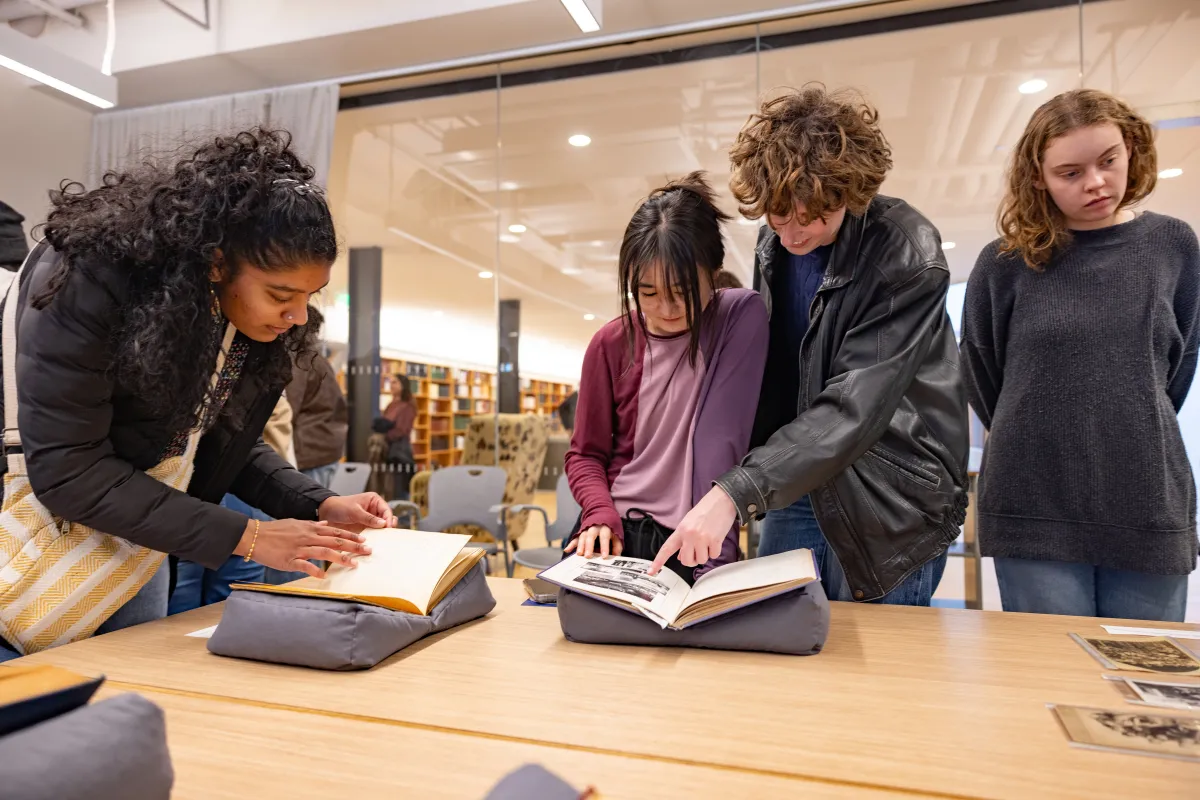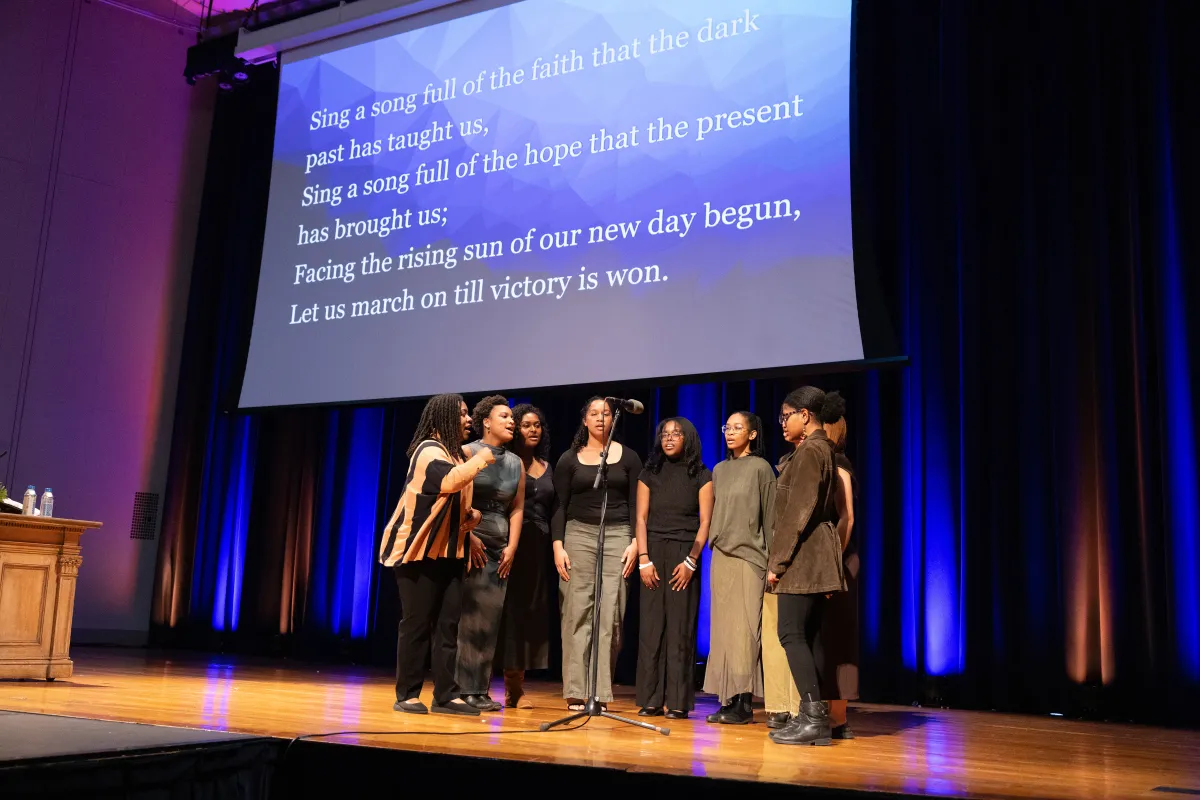Cromwell Day Offers Smith College Community Hope in Contentious Times
News of Note
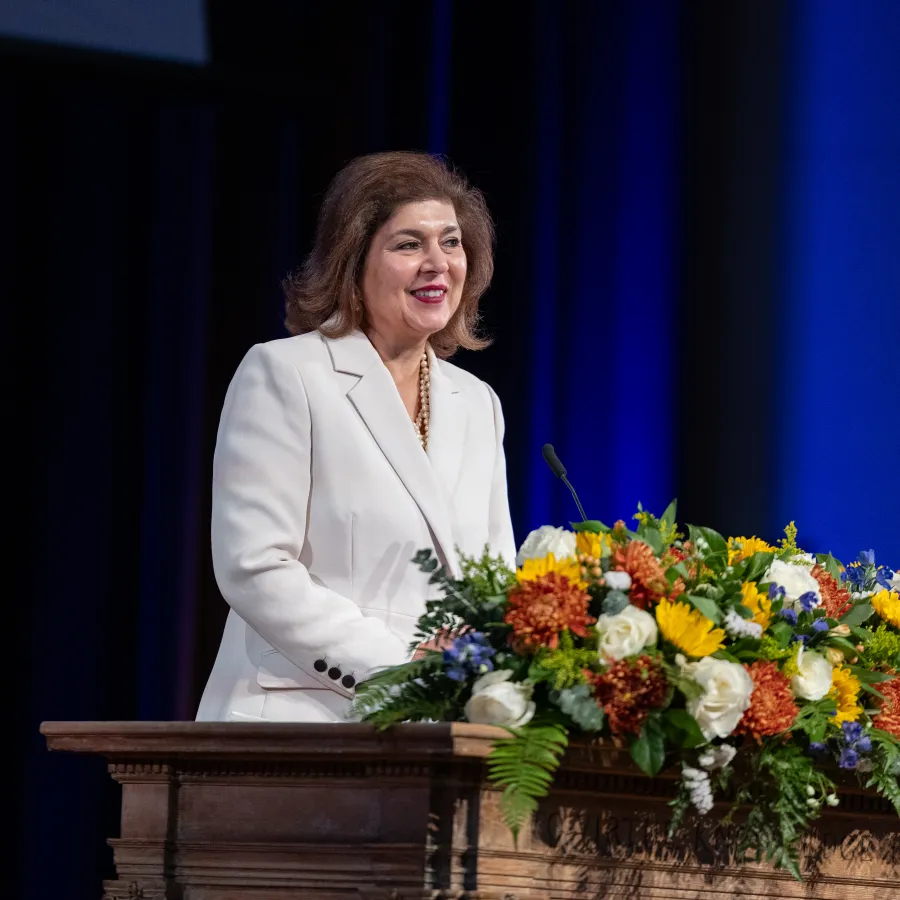
Photo by Jessica Scranton
Published November 6, 2025
Conversation, celebration, and contemplation were the hallmarks of this year’s Cromwell Day at Smith College.
From a keynote address by diplomat and scholar Farah Pandith ’90—who, as a student, helped found the annual event—to workshops, special exhibits, and performances, the day offered numerous opportunities for reflection about diversity, racism, and inclusion.
“Cromwell Day calls us to practice what we preach,” said Smith President Sarah Willie-LeBreton in her remarks at the ceremony in John M. Greene Hall. “It’s an invitation to stay open hearted and open minded.”
Cromwell Day was established in 1989 to honor the legacy of Otelia Cromwell, class of 1900, Smith’s first African American graduate. It has since expanded to also celebrate Cromwell’s niece, Adelaide Cromwell ’40, Smith’s first African American faculty member. A committee of students, faculty, and staff plans and organizes the day’s events in collaboration with Smith’s Office for Equity and Inclusion.
Inviting Pandith to be the keynote speaker fit perfectly with this year’s Cromwell Day theme of “Courage and Community in Contentious Times,” said Floyd Cheung, vice president for equity and inclusion. “We knew we’d need a keynote speaker who could give us some perspective and offer us some hope.”
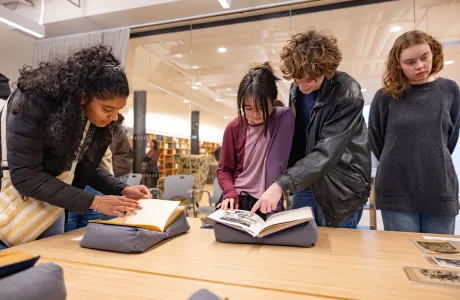
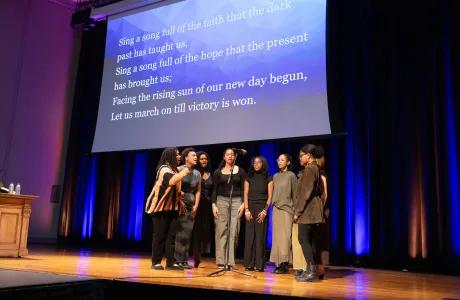
Pandith—a Smith Medalist who is now a senior fellow at the Council on Foreign Relations—was president of the Smith Student Government Association in the late 1980s during a period of turmoil over incidents targeting Black students on campus. Working with a group called Concerned Students of All Colors, she helped found Cromwell Day as a time for healing and learning.
In her address, Pandith described how that experience shaped her life and her career in international relations. “My courage developed in community—this community,” she said. “It was here at Smith that the sense of my life’s work began.”
While many of the conditions that existed at the time of that first Cromwell Day—division, fear, and racial and gender violence—persist today, Pandith offered hope. “There is a way forward, a way to bring in more light,” she said.
Drawing from her global work with young people, Pandith called for a model of leadership grounded in what she described as “open power.”
“Open power is a redefinition of leadership where we take collective responsibility for the challenges facing us all,” Pandith said. “College campuses are an ideal testing ground.”
Earlier in the day, Pandith joined Associate Professor Loretta Ross for a standing-room-only “fireside chat” in the Campus Center Carroll Room. The two spoke about Pandith’s work, the roles of compassion and mutual respect in social justice reform, finding the courage to speak up for what you believe in—“as nervously as you need to,” added Ross—and the impact of Pandith’s Smith experience on her life since graduation.
“Smith was a place of family, of learning, and of explicit challenge,” Pandith recalled. “Because I had to confront challenges as a student, I learned how to do so as a leader as well.”
Her time at Smith instilled in her the “capacity to listen and to disagree in the service of finding solutions,” she said. “That first Cromwell Day was a step toward healing. That we are still doing so is a source of enormous hope.”
Other highlights from the day:
- A display in Neilson Library of materials from the Cromwell Family Papers, including photographs, scrapbooks and other items from Otelia and Adelaide Cromwell’s undergraduate days.
- The traditional Cromwell Day reading of Nikky Finney’s poem, “Maven,” which this year was read by Kaday Jarra ’26.
- Student-led workshops on topics ranging from Black modernism to the history of multiracial student organizing at Smith.
- An interactive spoken word performance by Lyrical Faith, a Black educator, activist, and award-winning poet from The Bronx.
